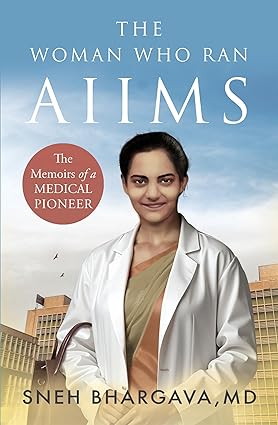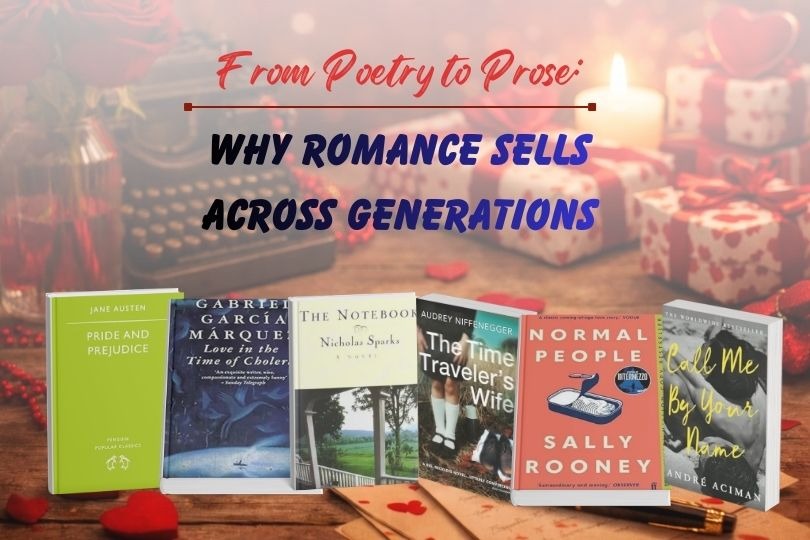Frontlist | Priyanka Chopra Jonas: The world at her feet
Frontlist | Priyanka Chopra Jonas: The world at her feeton Feb 03, 2021

She is arguably the most recognisable Indian celebrity on the global stage today. But for 38-year-old Priyanka Chopra Jonas, who made her debut on Fortune India’s 50 Most Powerful Women in Business list in 2020, the added global fame she says comes with a “lot of added chatter”. “I seem to be fun dinner table conversation,” quips the actor, during an exclusive video interview with Fortune India. “I think that the pressure that I take on myself is to make sure that I don’t let down the people that have supported me for such a long time, and have made me the recognisable person that you are saying I am.”
Her memoir Unfinished, which will be released this month, is not only about her achievements and laurels. It also touches upon “my failures, my sadness and the times in my life where I have struggled”, says Chopra Jonas, who now dons multiple hats—of an actor, producer, and investor. Apart from building a power portfolio as an actor, she has also come to be an astute businesswoman, and has been instrumental in getting the dating app Bumble to India. “I am very curious and I am dabbling in a lot of businesses this year,” she shares, without revealing too much. Edited excerpts:
What was the trigger for penning down your memoir Unfinished?
I was approaching 20 years of being in the entertainment business and I wanted to commemorate that somehow for myself. I have always written, and I have always been a writer. But I was always afraid of structured writing like a novel, book, or a screenplay. So I think this was a sort of evolution of that idea. I didn’t start writing the book properly till the quarantine actually happened. When I was home for six months it really gave me the time to scratch beneath the surface. And I really wanted this book to not be about my achievements and laurels. Because I started writing it at a time when I was home and I had the ground beneath my feet, I sort of treated it like a journal. A lot of introspection happened very organically—a sort of dissection of my failures, my sadness, and the times in my life where I have struggled. I don’t know how it became that book, but I think that’s the book I internally wanted to write.
If Covid-19 hadn’t happened then we wouldn’t have had this book launch in 2021?
It was supposed to happen in 2020, but I just never had the time to write it. But if Covid-19 hadn’t happened I would have still written a book, but I think it would have been a very different book. I may not have been able to scratch [beneath] the surface as much as I have in this one.
What is the most compelling story in the memoir that comes to your mind?
I rather not share it and rather you read it in the book. But there are things that I have never spoken about, and there are things that probably I will never speak about—many of them were tumultuous. Things that I hadn’t dealt with emotionally over time; things that I had forgotten which I remembered, especially my early career. I can’t say one specific thing, but I know there will be multiple times like I have really delved into things that I probably didn’t even deal with myself.
I am a very slow typist, but I was thinking very fast. So I started recording what I was thinking. There were times I started crying, and would stop recording. Every time I stopped, I would go to my family, friends who were around me. It was a very cathartic and visceral process for me.
I was approaching 20 years of being in the entertainment business and I wanted to commemorate that somehow for myself. I have always written, and I have always been a writer. But I was always afraid of structured writing like a novel, book, or a screenplay. So I think this was a sort of evolution of that idea.Priyanka Chopra Jonas
On the title Unfinished: Is there a sequel?
There is a sequel to my life for sure. I remember I was doing this ‘73 questions’ for Vogue—the feature that they have—and they asked me if I had a memoir, what it would be called? I just said ‘Unfinished’ because I wanted to do so much more if I have the ability to. And that’s how I just named it; it just seemed appropriate. And I do feel unfinished. I feel like I am at a precipice of a very new chapter in my life now.
You are arguably the most recognisable Indian celebrity on the global stage now. Does that come with a lot of added pressure and responsibility?
It comes with a lot of added chatter. I seem to be fun dinner table conversation. But I think that the pressure that I take on myself is to make sure that I don’t let down the people that have supported me for such a long time and have made me the recognisable person that you are saying I am.
It has only been five years since I have been acting in America of which three years were in a television show. I am building my career here right now. I am still very nascent. I haven’t had the good fortune of doing the variety of roles and working with the variety of directors that I did when I was doing my work in India. I have done so much work in India in such diverse roles with diverse filmmakers and that is my quest as an actor here as well and with India as well. So the pressure that I take upon myself is definitely making sure that my level of work is at a level of excellence.
You have your production house, Purple Pebble Pictures. What is the road map as a producer?
It is just the beginning. The work that I did in India when I started Purple Pebble Pictures—instead of doing Hindi and Bollywood movies I started doing regional [language] films. I again wanted to create an opportunity where there were few because no one did that for me. It shouldn’t be so hard for people who have talent and stories to tell and [they should] be able to do it easily. I did multiple regional films in multiple languages including Bhojpuri, Punjabi, Marathi, Assamese, and others. The same thing that I am attempting to do in America is to tell South Asian stories, minority stories, female stories. We are one-fifth of the world’s population but when you look at global entertainment, which is now consumed in 160 countries, you don’t get to see those content (South Asian stories). I am talking about English language global entertainment which is what everyone consumes.
I really want to be able to attach myself and tell stories like that. Think about my film White Tiger, which recently got released on Netflix. I don’t think five years ago, before the streamers became such a large part of our lives, that a movie directed by an Irani [director Ramin Bahrani is of Iranian descent], with an all-Indian star cast, which is shot in India and written by an Indian author would have got the budget it did today. We had Netflix who had the vision and who understands global content, and it doesn’t have to be just in English. This movie is 30% in Hindi and the rest in English, which is very true to the world and very true to the novel. That is very exciting to me as a producer to be able to do things like that. Even going forward, my movie with Mindy Kaling and a couple of others are mostly South Asian stories with a full South Asian cast in America. That to me is very exciting.
Since you mentioned streamers, has Covid-19 changed the way people watch movies now? Is it the end of theatres and are OTT platforms here to rule?
I hear so much about this comparison between movie theatres and OTT platforms. It is almost like we are afraid to grow. When you think about streamers that’s an evolution of the business. Just like when satellites came about. Till then we used to only release movies in theatres, then we were selling it to satellite channels. That became another avenue of revenue. Like that, this [OTT] is an evolution of entertainment.
We need to take it in our stride instead of being afraid of it. Because the theatrical experience is not going anywhere. People love going to the theatres, having popcorn, and watching a movie on a big screen with strangers. That joy no one can take away. It is the cheapest and most amazing form of entertainment in the country.
But I think there is merit in aligning with streamers—Covid-19 has only made it fundamentally stronger. Now we have the ability to sit with our family and watch a new movie releasing immediately on television. There is a freedom and enjoyment to that as well. I also think they can both (theatres and OTT platforms) successfully exist together and give us a lot more avenues to create a lot more diverse content. To give opportunity to a diverse amount of casting and talent. To see different kinds of people acting and not just one specific kind of person. To see a pool of talent getting opportunities: actors, writers, directors, and that’s an exciting thing.
You have also come to be regarded as an astute businesswoman. Give us your rationale on being an investor and what does it mean to you?
When I set up Purple Pebble Pictures that was because I had an aptitude towards business and interest in business. But I also had an aptitude towards tech. I wanted to be an engineer when I was young; technology is something I find extremely fascinating.
Also coming from a country like India, which has literally built the culture of startups and is one of the largest and fastest growing digital economies in the world. There is a lot of curiosity I had in it.
My manager in the U.S. is also a venture capitalist; She used to talk to me about companies that she was funding. So I got interested in it. I always somehow pivot to the left and I always want to do things in different areas. For example Bumble India; I have invested in Bumble India. That was my first investment. When I spoke to Whitney [Whitney Wolfe Herd is the founder and CEO of Austin-based Bumble, a social networking and dating app] I saw the gap in the market. I saw India as a country where women are really demanding their voice, their rights, and opportunities. And to give a woman in India the first move is such a powerful thing. That was my reason to bring Bumble to India. [Unlike most other dating apps, the women on Bumble get to make the first move.]
Everything I am sort of aligning with… mostly female businesses, where I see a gap in the market, or trying to find businesses that are interesting and new and probably provide a service that we might need. So I am very curious and I am dabbling in a lot of businesses this year. I want to do a wide spectrum of things creatively and as an entrepreneur.
Source: Fortune News
Author
Authors
Bestseller
Book
book news
Frontlist Article
Frontlist Book News
Frontlist India
Indian authors
Interview
Latest news
Priyanka Chopra
Priyanka Chopra Jonas
Unfinished

.jpg)
.jpg)
.jpg)
.jpg)
.jpg)

.jpg)
.jpg)
.jpg)
.jpg)
.jpg)


.jpg)

.jpg)










Sorry! No comment found for this post.